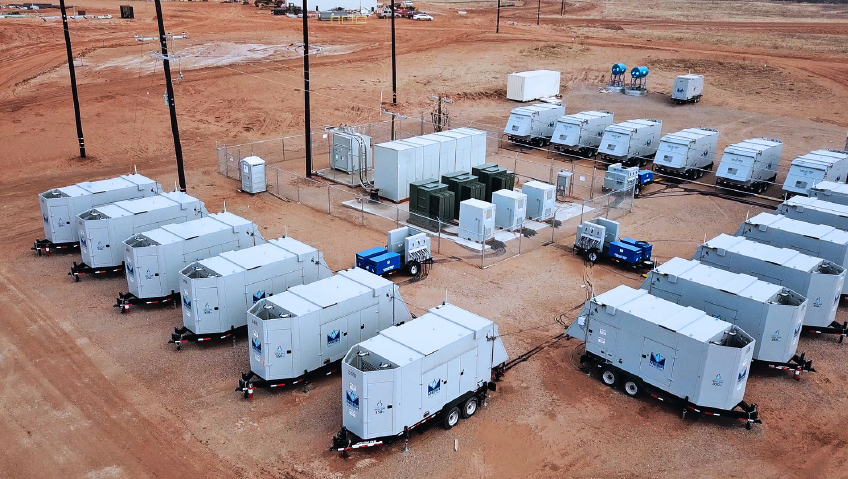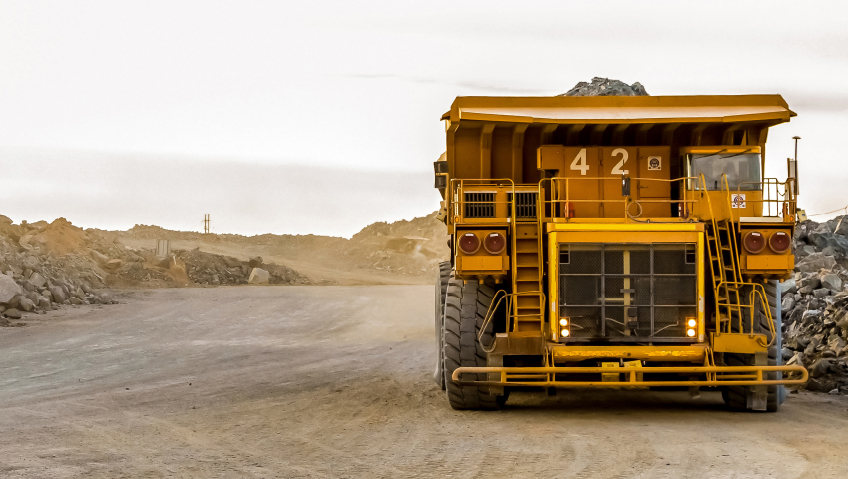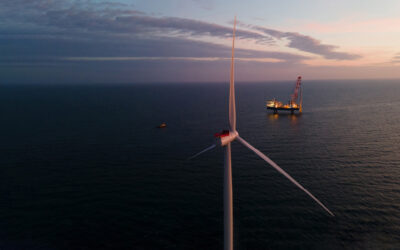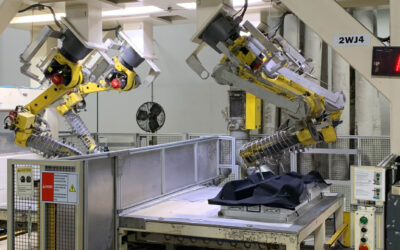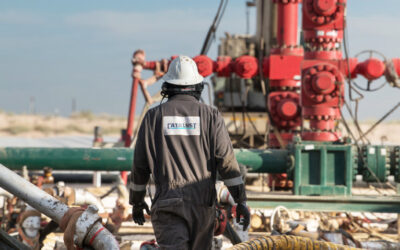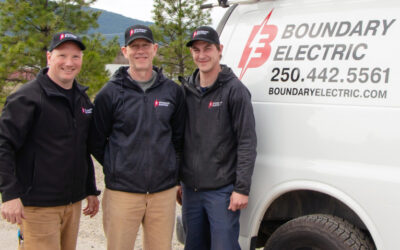Loveland, Colorado-based Mesa Natural Gas Solutions designs, manufactures, and supplies portable and stationary generators. When an unexpected cold snap recently caused the Texas power grid to collapse, the company sprang into action, setting up portable generators to provide electricity in stricken communities.
“We’ve got five different sites, where we’re powering the city’s water supply, powering the pumps that are getting water out to homes and businesses,” Chief Executive Officer Scott Gromer said at the height of the Texas power outage in mid-February.
Its portable generators, which can run on natural gas or propane, were transported from company-run service centers to small communities in South Texas and northern Oklahoma. Unlike power generation equipment in Texas, which was not properly winterized, Mesa generators work well in all kinds of weather.
“We build our generators to deploy anywhere in the world, from very cold operations in Northern Canada and Alaska to very hot operations in the Middle Eastern desert,” said Gromer.
Mesa’s work in Texas underscores its mission to provide a reliable, efficient, environmentally-friendly source of electrical generation to clients. Its parent company is Dallas-based BP Energy Partners, a spin-off of hedge fund BP Capital Management. The firm was named after Mesa Petroleum, an earlier fuel company owned by BP Capital founder T. Boone Pickens.
It offers two main product lines: stationary PowerCore units and portable natural gas generators. While plenty of companies also sell gas and propane-fuelled generators, Mesa stands out for several reasons. For a start, its equipment is designed to be especially long-lasting and low-maintenance.
“We focus on building and servicing products that are meant to run for long periods of time. We don’t build a stand-by generator that would go in your house,” stated Gromer. “We do not build products that are meant to run a few hours a year or a few days a year when there’s a power outage.”
The company’s generators “have the capacity to run twenty-four hours a day, seven days a week” for “years and years without any downtime or any significant maintenance,” he noted proudly.
Launched in early 2014, the company has a head office and research and development facility in Loveland, as well as a manufacturing plant in Wyoming and a nationwide network of service centers.
Mesa has a presence “throughout the central U.S., from North Dakota to South Texas, from nearly the Canadian border to the Mexican border. That’s our U.S. operations. We also work with other dealers in the power generation space, so if we go outside one of our service areas, we will engage one of our service partners to operate and maintain the generators if they’re outside of our coverage area,” explained Gromer.
The company offers thousands of generators that can be leased and “deployed when and where they are needed for our customers. They stay on locations from days to years. On the sales side, we manufacture and sell generators to different customers around the world,” he continued.
The generators are designed to be weather-proof. All generators, whether portable or stationary, are protected by a custom-built enclosure that features a series of louvers. The louvers open and close automatically, depending on outside air temperature. When it is hot, the louvers open to let in cool breezes. When cold, the louvers close, protecting the machines from frost and freezing.
Mesa does its own design and manufacturing. It purchases engines and a few other components from outside suppliers but assembles everything in-house and uses proprietary software and controllers.
All generators are fitted with telematics technology so performance data can be monitored remotely. The company trains clients so they can maintain and operate the telematics systems on their own but its technicians can also monitor equipment performance at an operations data center at company headquarters.
Mesa’s stationary power generators are sometimes linked together in microgrids for extra power or reliability. Whether bunched in a microgrid or installed as a single unit, the stationary generators are typically used by factories, warehouses, and data centers that either need more energy or lack a connection to a utility. The company’s stationary generators are also utilized by some electrical substations as a backup in case of a power disruption in the transmission lines.
Its portable generators are popular with mining firms, oil and gas facilities, construction companies, and other commercial/industrial businesses that need electricity but are outside the reach of a power utility.
‘Flare mitigation’ is another company specialty. In petroleum extraction and other industrial operations, excess gas is often burned or ‘flared’ off. Flare gas, as it is called, can be used to produce electricity which, in turn, can power worksites or communities or be channeled back into the energy grid. Mesa is currently involved in a major flare mitigation project in Nigeria.
“There are areas of that country that are starved for power. They get electricity in their remote villages for a few hours a month. Yet, they’re flaring a lot of gas. So, we’re working on a project there with a local partner to turn that flare gas into electricity to provide to remote villages and communities,” stated Gromer.
This is not Mesa’s only international venture. It has worked in South America, the Middle East and the Philippines, where its propane generators provide electricity on isolated islands. In October 2020, the company announced a pilot project agreement with an Australian firm called Bluestone Power. Under the terms of the deal, Mesa will supply Bluestone with natural gas power generators and design and engineering services.
Gromer is pleased with Mesa’s role in the burgeoning green economy. The company’s generators, which use clean-burning natural gas, are becoming increasingly popular as backup support at solar and wind power facilities.
“Unfortunately, the sun doesn’t shine twenty-four hours a day, and the wind doesn’t blow twenty-four hours a day. So, there is a gap in coverage for current renewable sources of power generation. Natural gas is the cleanest burning carbon fuel that’s on the market right now, and it’s readily available and is relatively low cost compared to other fuels. It works very, very well for that base load or providing power in times when solar and wind just can’t,” he explained.
“Our vision is to continue towards greener technology. We want to help our customers produce electricity economically, reliably, and with the lowest possible carbon footprint. I don’t think the world will be zero carbon in five years, but we want to be there to reduce the amount of carbon and be as green a company as possible without sacrificing reliability and resiliency.”
Military veterans also play a special role at Mesa, and Gromer himself served in the United States Army and Army National Guard for over two decades.
“When we started the company, I brought some friends I had served with. There were seven of us that were the core group of the business. Out of the seven, four of us were people who had served in the military together with,” he recalled.
Mesa likes to help veterans who are transitioning to civilian life by offering them good jobs at a growing firm. Its commitment to service members was recognized by the federal government in November 2020, when it received a HIRE Vets Medallion Award which honors companies that hire and retain veterans. At a ceremony hosted by the U.S. Department of Labor, Mesa was one of 675 to receive the award that year.
Total employee numbers now stand at roughly 300, up from 250 this time last year. This impressive growth is even more remarkable given that 2020 was the year COVID hit.
“We implemented plans to keep our workers as safe as possible so they could still perform their jobs because, ultimately, we still had to provide electricity for our customers. We are a critical company and did not have to shut down. We still kept operations going and were able to do that safely, without sacrificing quality and productivity,” stated Gromer.
Mesa Solutions also had to adapt to the abrupt halt to in-person trade shows, meetings, and conferences. In response to such developments, it enhanced its social media presence and moved client meetings and promotional efforts online.
“A lot of our business [used to be] face to face meetings and education with customers. That has significantly changed,” he said. “Zoom, GoToMeetings, Microsoft Teams, you name it, I think we’re experts on all of them now.”
Gromer wants to see the company continue to expand while retaining its core values which center on reliability, responsibility, and fair dealing. As he pointed out, maintaining a consistent flow of electricity has become more important than ever.
“I think what COVID did was open everyone’s eyes, much like the power problems in Texas are opening people’s eyes to different vulnerabilities in the world,” he noted.
The shocking vulnerability of power generating systems, in Texas and elsewhere, has made Mesa more determined than ever to “provide reliable electricity to our customers, anytime, anywhere,” continued Gromer.

